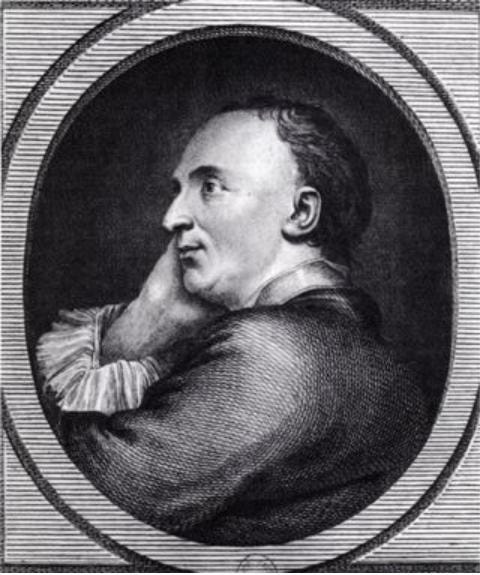Enlightenment polymath
Review of Diderot and the Art of Thinking Freely by Andrew S. Curran
Diderot (1713-1784) started as a member of the emerging middle class. His father was an expert artisan of cutlery in a provincial French city, Langres. Of exceptional intelligence and well connected, he seemed destined for the clergy, like his uncle, a Bishop. This would have been a lucrative and secure life, but after much training including top schools in Paris, he was denied promotion, perhaps because he reluctant to give up sex. His decision to go his own way alienated him from his extended family and cut him off from their financial support.
Highly educated, Diderot quickly found work as a translator, while beginning to write in a variety of genres. His writing brought him to the attention of conservative censors, who wanted to suppress his apparently atheist-leaning philosophical dialogues. Soon, he was locked in prison, which he defied and then seemed to become broken in spirit, begging for release and promising good behavior. This drove much of his writing underground, particularly on religious subjects. As a result, he left an enormous amount of texts unpublished, which he bequeathed to his daughter and a few others; about half of them were not found until after World War II.
The book is oddly structured. Part I is a quick and immensely enjoyable biography, which is written in a fluid style that is very fun, mostly about what he published in his lifetime. Part II is broken down by topic - love, sex, art, ethics, biology - and is much less engaging; it flits over the surface of the topics predominantly in his unpublished works. I think it should have embedded his ideas more deeply into Diderot's times and offered more detailed assessments of how his writing influenced both contemporaries and later generations. I got to the end of the book and felt frustrated that I got so little idea of what he actually accomplished.
Diderot was the principal editor and author of the Encyclopedia, a compendium purported to share all available knowledge. Curran stresses that it was viewed as a highly subversive undertaking, stopped intermittently by censors and under constant threat from Versailles. He got around this by embedding many of his controversial thoughts in long essays, with a subtle system of cross-referencing them, so that committed readers (yet not the censors apparently) could find nuggets of information that taught them to be freethinkers. Nonetheless, after decades of labor, the printer edited out a number of the most controversial passages and essays. Diderot was incensed but, Curran argues, he still essentially accomplished his ambition.
The other stuff is much less clear to me, kind of a mishmash in my reading. In his interpretations, Curran offers up an intellectual portrait of sorts, but it was too speculative and vague for me. For example, in the section on biology, Curran sees Diderot as a direct precursor to Darwinism, in that life was separated from scriptural precepts, hence materialistic and mechanistic. What I wonder is how, if at all, he influenced working biologists; Curran offers nothing concrete to back up his claims on this and other issues. (I know it's hard to judge the "real" impact of ideas, but that was the purpose of the book, or so I thought.) The ethics is even more convoluted, as are the speculations about sex and love. Though long married, Diderot had a number of mistresses, both intellectual and physical.
Unfortunately, for all its enjoyment as a reading experience, I did not feel that I understand what his life and work meant. He was a brilliant polymath, a lover of life, and a kind of early modern Socratic thinker who questioned everything, especially religious dogma: he was openly atheist.
This is a fun, almost breezy read, much of it descriptive. I had expected more analysis, some thesis more specific than that Diderot trained us to think freely.


